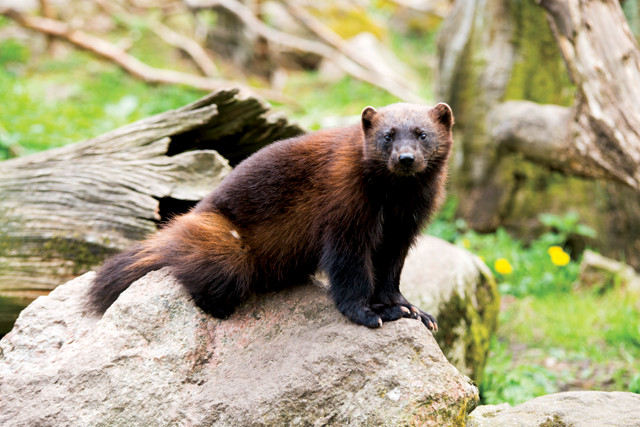
by Bethany Augliere Friday, August 3, 2018

Roughly half of European mammals, including wolverines, could struggle to find new habitat amid changing climates. Credit: CC BY-SA 4.0, Jonathan Othén.
As temperatures on Earth rise, many animals have already begun migrating to more amenable climates, shifting their ranges. But not all animals will be able to relocate, according to a new study in the journal Diversity and Distributions.
Researchers analyzed how 62 European mammal species would respond to future climate change and found that, under a worst-case scenario climate model, about half of the animals would likely struggle because of their individual characteristics and because of the loss of available habitat. This includes species already at risk, such as wolverines, and others currently not considered at risk, such as the Eurasian elk.
Lisbeth Morrison, an ecologist at the University of Reading in England, and colleagues calculated how much land would be lost or gained under current climate models, and how far each animal would have to move to reach new habitat. Then, they ranked the animals’ abilities to persist based on two key characteristics: whether they are dietary generalists or specialists, and their reproductive strategy. For instance, if an animal bears many young, or can eat a variety of foods, the species can better colonize a new area, Morrison says. Unfortunately, for animals with limited diets and which don’t bear many offspring, the picture appears bleak. “For the wolverine, the situation is only going to get worse,” she says.
When it comes to looking at how animals will respond to climate change, she says, “we can’t only consider climate models, it’s important to look at species individually.” Ultimately, this can help with management and conservation, she says.
© 2008-2021. All rights reserved. Any copying, redistribution or retransmission of any of the contents of this service without the expressed written permission of the American Geosciences Institute is expressly prohibited. Click here for all copyright requests.